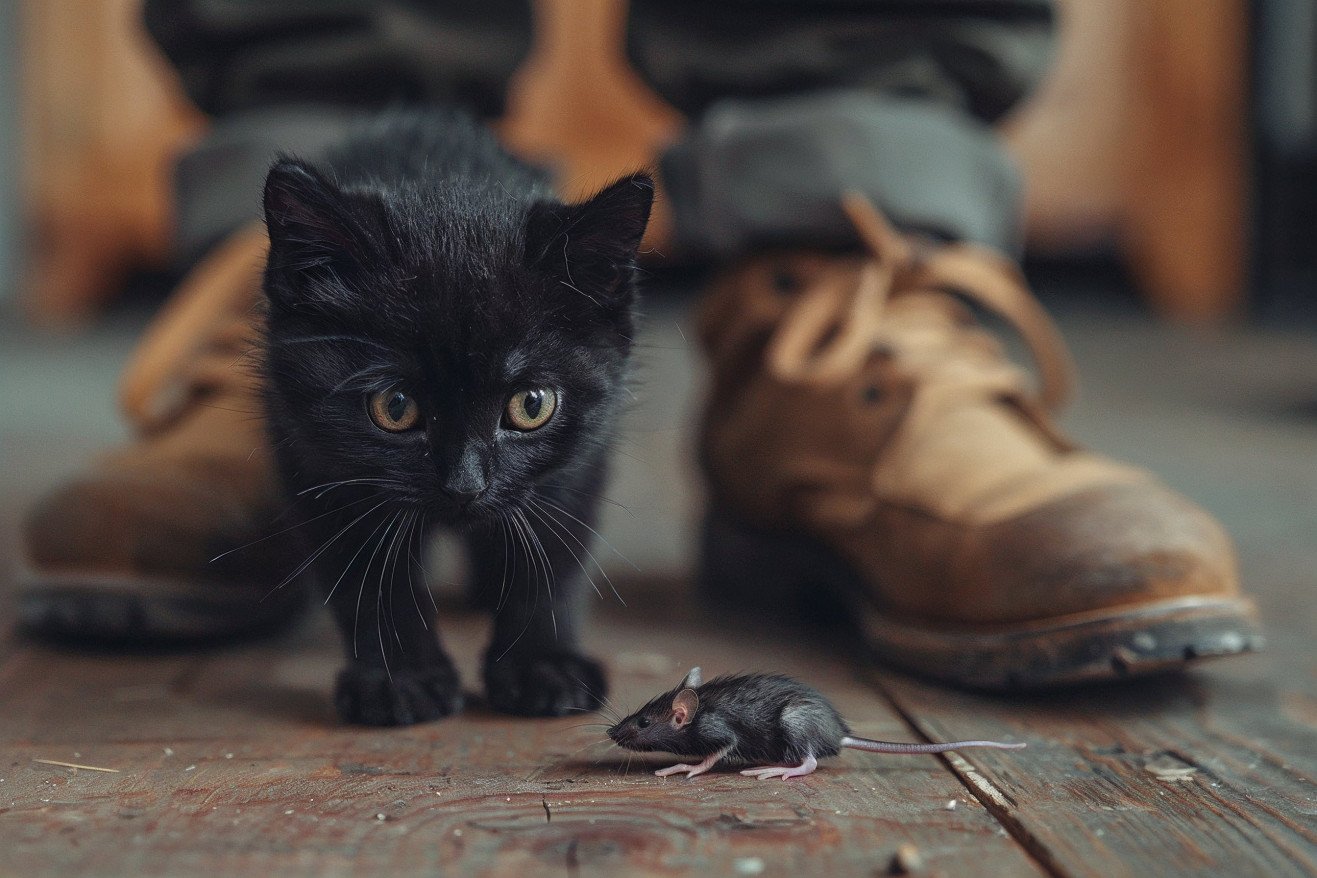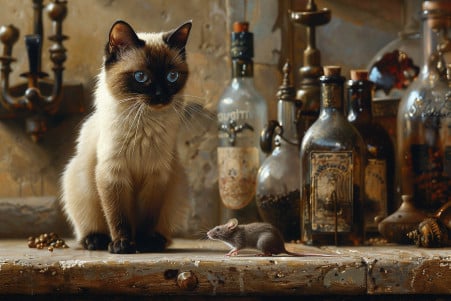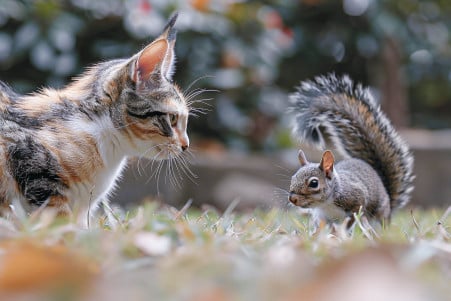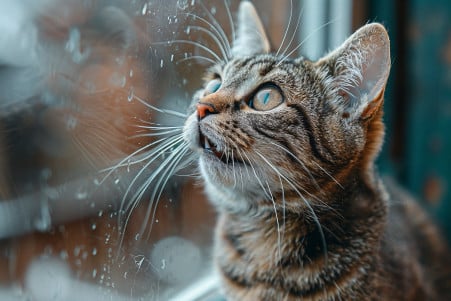Why Do Cats Bring You Dead Animals? Exploring Instinct and Evolution
29 May 2024 • Updated 28 May 2024

While bringing home dead animals may not be the most appealing present, it's actually an instinctual behavior that harkens back to a cat's wild roots and maternal instincts. Cats are natural hunters of live prey, and they bring home the "trophies" to show off their hunting skills and to help their kittens learn to hunt. Although no longer necessary, this behavior has become a way for domestic cats to express their love and pride in their hunting abilities.
For those who want to know more about the deeper reasons for this somewhat gruesome feline behavior, this article will look at studies in animal behavior, evolutionary biology, and veterinary science to help explain why cats do this. This will help you better understand the sometimes contradictory roles of instinct, learned behavior, and the lasting effects of a cat's wild heritage even after years of domestication.
By learning what's really motivating this behavior, you'll come away with a deeper understanding of the feline mind and a greater respect for your cat's natural abilities.
Why do cats bring you dead animals?
Why Do Cats Hunt?
Cats are obligate carnivores and their ancestors were skilled hunters, so they have both physical and behavioral adaptations that are well-suited to a predatory lifestyle. Cats' retractable claws, sharp teeth, night vision, and agility all make them highly efficient predators that have been shaped by natural selection over thousands of years.
As a result, the hunting instinct is hardwired into cats from birth. Kittens learn to stalk, pounce, and kill prey through observation and play, and their mothers help them develop these skills by gradually showing them how to hunt. Even when they're well-fed, domestic cats' hunting instinct is separate from their need to eat, and they will exhibit predatory behavior regardless of when they last had a meal.
In addition to the physical adaptations that make cats such effective hunters, the hunting behaviors they exhibit, such as "toying" with their prey before killing it, are thought to have evolved as a survival strategy to prevent cats from being injured by their prey. While this is no longer necessary, hunting allows cats to satisfy their natural instincts and practice the predatory skills that have been passed down to them from their wild ancestors.
While domestic cats may not need to hunt to survive, their ancestors' hunting skills are still evident in their behavior, including the tendency to bring their human family members "gifts" of dead animals. This ancestral legacy is the basis for the multifaceted reasons that cats exhibit this behavior, which also includes the influence of maternal instincts that have been passed down through the generations.
From Mothers to Owners: The Maternal Instinct to Teach Hunting
In the wild, mother cats teach their kittens to hunt by bringing live prey for them to practice on. According to The Spruce Pets, this prey-catching behavior has nothing to do with being hungry, but rather an instinct to pass on vital hunting skills to their young.
Domestic cats without offspring may transfer this maternal drive onto their owners, treating them as surrogate kittens. Live Science reports that spayed female cats are the most likely to bring "gory gifts" to their owners, as they have no young to teach. By bringing dead animals, these cats are attempting to share their bounty and teach their 'family' - their human owners - these important survival skills.
While no longer necessary in the modern domestic setting, this instinctual behavior reinforces the strong social bond between cat and owner. According to Ultimate Pet Nutrition, female cats may view their owners as surrogate kittens, driving them to "feed" and "teach" their human family members through these gruesome gifts.
Cats and the Environment
The domestic cat is widely recognized as an invasive predator that can have a major impact on local wildlife. The Campus Center for the Environment reports that cats have caused the extinction of at least 63 species worldwide and are responsible for the deaths of billions of birds and small mammals every year. One study even suggests that cats in the United States kill 2.4 billion birds and 6.3 billion small mammals annually.
Although cats may help control non-native pest species such as rodents, they are generally detrimental to native ecosystems. Conservationists have suggested that since so many species are in decline, including many birds and mammals, it is important to address all factors that contribute to their decline, including predation from domestic cats.
To protect wildlife, some of the measures that have been proposed include keeping cats indoors, using deterrents like bells or bibs, and creating 'no cat zones' around sensitive habitats. The Conversation even suggests that it may be more effective to focus on managing cat populations in the wildland-urban interface than to try to manage an entire city's population of free-roaming cats.
The management of free-roaming cat populations is a complicated issue that involves animal welfare, public opinion, and cultural differences. As discussed in a paper in People and Nature, the strategies that are available must consider the trade-offs between practicality, scientific ambiguity, the needs of cat owners, and the perceived needs of domestic cats.
How to Stop Your Cat From Bringing You Live Animals
While hunting is a natural behavior for cats, some cat owners may want to stop their pets from hunting and bringing them live animals due to safety or moral concerns. Purina explains that there are a number of ways to discourage this behavior without resorting to punishment.
One of the most effective ways to stop your cat from hunting and bringing you live animals is to keep your cat indoors or only allow them to go outside in a secure enclosure. Animal Talk also recommends using a breakaway collar with a bell to give potential prey a warning and a chance to get away. In addition, make sure your cat has plenty of interactive toys that allow them to engage in play that simulates hunting.
Another way to stop your cat from hunting and bringing you live animals is to make sure there are no places where rodents and birds can nest near your home. Catster also recommends using positive reinforcement to reward your cat when they bring you a toy instead of a live animal, which can help change their behavior over time.
By making changes to your cat's environment, using deterrents, and providing enrichment, you can stop your cat from hunting and bringing you live animals while still allowing them to engage in other natural behaviors. And by learning about the evolutionary and maternal factors that drive this behavior, you can come up with a solution that works for you and your cat.
Cultural Perspectives on Cats as Hunters
Throughout history and across different cultures, human attitudes toward cats and their hunting habits have varied widely. In ancient Egypt, cats were worshipped for their hunting prowess and linked to powerful deities like Bastet, the goddess of fertility, protection, and war. According to the Human Relations Area Files, the Egyptian practice of revering cats likely spread to other societies along trade routes as cats were adopted by different cultures around the globe.
In the present day, some cultures still regard cats positively, valuing them as hunters that keep the local ecosystem in balance by controlling pests. However, as discussed in a paper in People and Nature, domestic cats are increasingly considered invasive predators that endanger native wildlife. This difference in cultural attitudes affects ongoing discussions about how to manage cats, including whether to euthanize them or implement trap-neuter-return programs.
Indigenous cultures may have their own beliefs about cats' supernatural powers or mystical connections. For instance, the Human Relations Area Files notes that Maya sorcerers in the Yucatan are believed to be able to turn themselves into domestic animals, including cats. These cultural differences have a major impact on how human societies view and deal with the hunting behavior of their feline companions.
Conclusion: Understanding the Cat's Inner Hunter
Although it can be disturbing to people, the act of a cat bringing home dead animals is a normal part of a cat's predatory and maternal instincts. It also helps strengthen the social bond between the cat and its owner, as the cat sees its owner as part of its family group. From an evolutionary standpoint, hunting enables cats to fulfill their natural instincts that were shaped by their wild ancestors.
That said, uncontrolled cat populations can be devastating to local wildlife, so it's important to find a balance and use ethical methods to manage the issue. In the end, knowing why cats do this can help people better appreciate the amazing things their feline friends can do.


